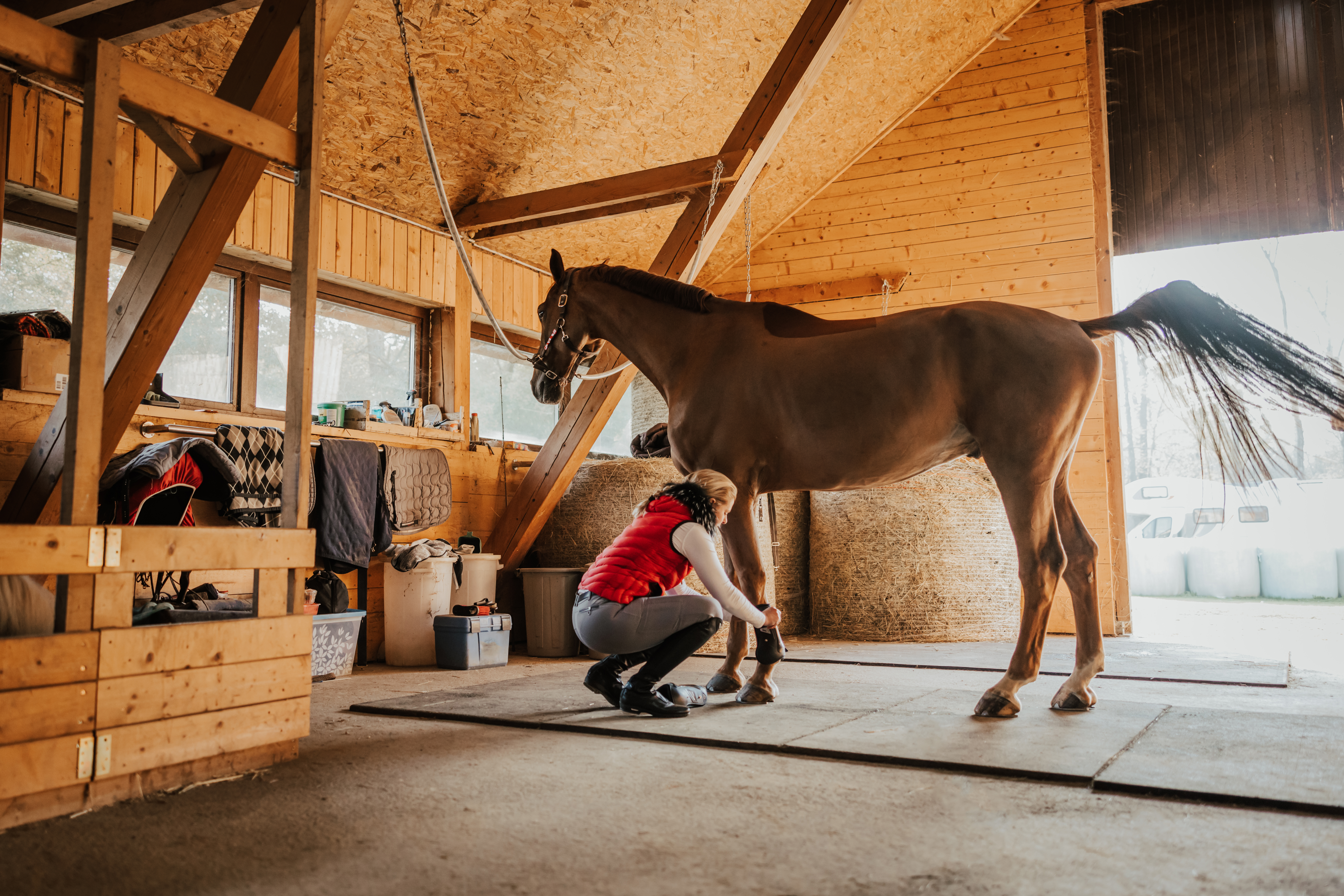The trailer is hooked up, the hay nets hung and the gas tank is full. All that’s left is to wrap your horse’s legs before loading him up and hitting the road. But maybe not....

The trailer is hooked up, the hay nets hung and the gas tank is full. All that’s left is to wrap your horse’s legs before loading him up and hitting the road.
But maybe not. Shipping wraps and bandages do protect lower legs from trauma in the trailer, but they aren’t always necessary and in some cases may do more harm than good. When making a decision about shipping wraps, consider the following questions:
Do they fit well and can I put them on properly? This is perhaps the most important consideration. Shipping boots that are too large or small, or wraps that aren’t applied appropriately, can trip or entangle a horse, causing injury. If your shipping boots typically end up on the trailer floor by the end of the ride, they don’t fit well and you’re probably better off not using them. And if you aren’t very confident in your wrapping ability (ask you veterinarian for an assessment if you’re unsure) keep practicing and forgo shipping bandages for now.
What’s the weather like? If you are shipping on a hot day, your horse is going to be even hotter under boots or wraps. Also keep in mind that riding in a trailer is an athletic event for a horse, so he will be producing more body heat than if he were simply standing. Leg coverings may not increase his overall body temperature, but studies have shown that tissues directly under boots and wraps—including tendons–can heat up, and potentially overheat, in hot weather.
What kind of hardware is my horse wearing on his feet? Shoes that have bars, trailers or a bigger fit can injure both the horse wearing them as well as a travel companion on the other side of a partial partition. Bell boots can help, but if the shoes look like a hazard, they probably are.
What kind of traveler is my horse? Seasoned shippers going short distances aren’t likely to scramble and step on themselves. Likewise, traveling companions who are comfortable in the trailer aren’t likely to step on each other. Shipping wraps or bandages may not be necessary in those situations. For inexperienced or fussy travelers, however, leg protection is important. Also, keep in mind that while it’s not unusual for a freshly wrapped or booted horse to take a few exaggerated steps as he first moves out, some horses never become comfortable with leg coverings and move unnaturally or even panic whenever they are applied.
As with many horsekeeping issues, the question of whether to use shipping bandages or wraps has no hard-and-fast answer. In the end, it’s a judgment call you’ll have to make for every trip and every horse.
This article first appeared in EQUUS issue #450, March 2015.
